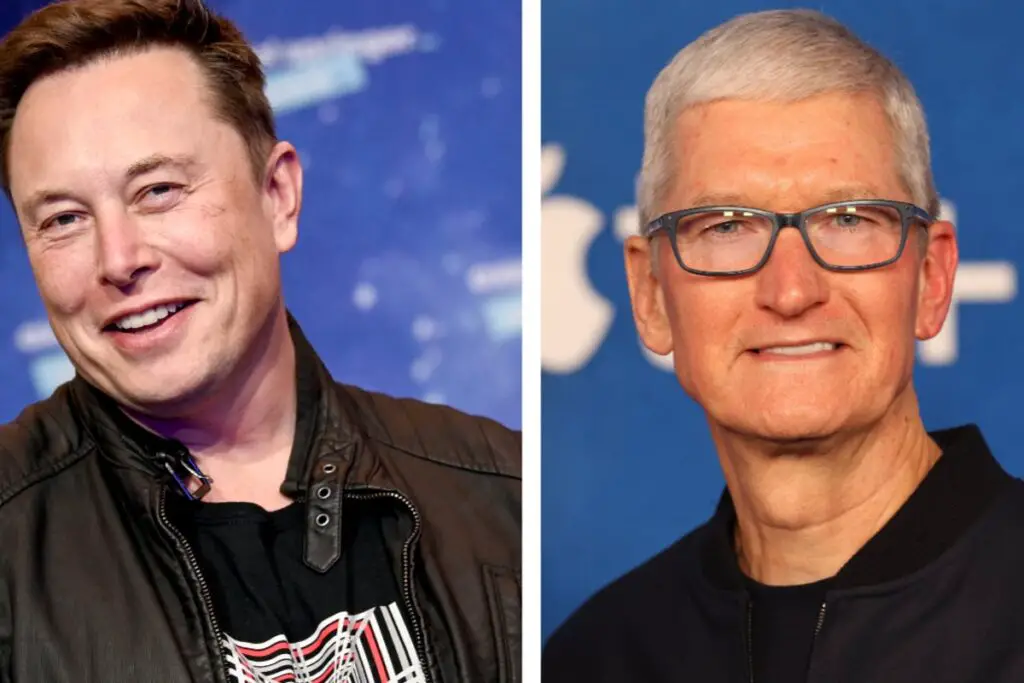In a major escalation of the artificial intelligence wars, Musk sues Apple over what he claims is an unlawful partnership with OpenAI that suppresses fair competition. The lawsuit, filed in a Texas federal court, accuses Apple and OpenAI of conspiring to block Musk’s startup xAI from gaining visibility and market share.
According to the filing, Apple’s exclusive deal with OpenAI has given ChatGPT privileged placement across iOS devices, while xAI’s Grok app and the X platform have been pushed aside.
Musk argues that this not only hurts his company but also limits consumer choice in the fast evolving AI market. The lawsuit claims that Apple has used its control over the App Store to lock up the AI market.
By deeply integrating OpenAI’s ChatGPT into iPhones, Apple allegedly created a closed ecosystem that sidelines rivals like xAI. Musk’s lawyers argue that, without Apple’s exclusive partnership, apps such as Grok and X would have had more visibility.
In other words, Apple’s decision wasn’t about quality or user demand it was about protecting its own monopoly friendly partnership. This is why the headline Musk sues Apple has sent shockwaves through both the legal and tech communities.
Lessons From the Microsoft Antitrust Case
This legal battle mirrors the famous United States v. Microsoft Corp. 1998 antitrust lawsuit. Back then, Microsoft bundled Internet Explorer with Windows to stifle Netscape. Courts found Microsoft guilty of anti competitive practices, forcing the company to change its behavior.
Similarly, Musk claims Apple is bundling OpenAI’s ChatGPT into its devices at the expense of alternatives. If courts see parallels, Apple may face restrictions on how it integrates AI into its ecosystem.
The Musk vs OpenAI legal clash could, therefore, become the Microsoft moment for AI. Industry experts are split on the lawsuit’s merits. Dr. Karen Liu, Stanford AI Policy Researcher.
When a hardware giant like Apple chooses only one AI partner, it creates market distortions. Musk’s case highlights why regulators must act quickly before innovation is choked.
John Peterson, Antitrust Lawyer, Apple can argue it simply chose the best partner. Unless Musk proves deliberate suppression, winning this case won’t be easy. This division shows how uncharted the AI legal landscape still is.
The Struggle of AI Startups
I spoke with Amir Khan, a startup founder who launched a language AI tool in 2024. Getting noticed on the App Store is a nightmare. Apple’s algorithms favor big names, and when they strike exclusive deals, small developers are invisible.
Musk may be a billionaire, but his complaint echoes what small innovators face daily. For entrepreneurs, Musk sues Apple is not just a headline it’s a symbol of their own struggles against tech monopolies.
Apple and OpenAI’s partnership was hailed as groundbreaking when announced in 2024. Millions of iPhone users now have ChatGPT baked into their devices, enhancing Siri and offering advanced AI tools.
But critics argue this move locks consumers into a single provider. Instead of an open marketplace of AI apps, Apple customers get a pre-selected default AI leaving little room for alternatives like Grok.
What Happens When Innovation Is Blocked
History shows what happens when markets close. BlackBerry, once a leader in mobile phones, collapsed because iOS and Android locked in app developers and consumers.
Startups who tried to create new mobile operating systems after 2010 failed because app store dominance left no room for them. Musk warns the same could happen in AI: only a handful of companies Apple, OpenAI, Microsoft could dominate, while competitors fade.
It’s easy to dismiss this as a billionaire fight. But if Musk sues Apple successfully, consumers may see a more open AI ecosystem. Grok and other AI apps could gain equal visibility on the App Store, driving more innovation and potentially lowering costs.
If Musk loses, Apple and OpenAI’s partnership could inspire even more exclusive deals, where tech giants decide which AI tools reach the public.
Antitrust in the AI Era
The lawsuit could shape the foundation of AI antitrust law. Governments worldwide are scrambling to regulate AI. The EU’s AI Act stresses transparency, while US regulators are probing Big Tech’s AI dominance.
If courts rule in Musk’s favor, companies like Apple may face new restrictions on exclusive AI deals. If not, the AI industry may consolidate even faster leading to fewer options and greater corporate power.
The phrase Musk sues Apple may be remembered as the start of a new era in tech law. This isn’t just about one company’s app visibility. It’s about whether the next generation of AI will be shaped by open competition or locked away in corporate alliances.
Just as Microsoft’s antitrust battle reshaped the PC era, this lawsuit could redefine the AI landscape. For Musk, the fight is both personal and strategic reclaiming a seat at the table he once helped build with OpenAI.
The lawsuit where Musk sues Apple over alleged AI competition suppression is more than a courtroom drama. It is a test of whether innovation will be allowed to flourish or stifled by monopolistic alliances.
For innovators, it’s a fight for survival. For consumers, it’s a fight for choice. And for the AI industry, it may be the defining legal case that sets the rules for decades to come. Whether Musk wins or loses, one thing is clear the battle for AI dominance has only just begun.

